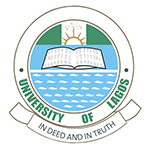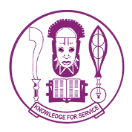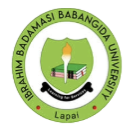Introduction
Ibrahim Badamasi Babangida University is an important institution in Nigeria, providing students with multidisciplinary education and playing an active role in academic research and talent training.
History and Establishment
The university was established in 2005 and is named after former Nigerian President Ibrahim Badamasi Babangida. It was established to meet the local demand for higher education resources in Nigeria and promote regional education and economic development.
Overview
Student size: The number of students in the school varies with the annual enrollment, including a large number of undergraduates and a certain number of graduate students. These students come from different regions of Nigeria, forming a diverse academic community.
Subject range: The subject area covers many aspects, such as agricultural science, engineering technology, natural science, social science, management science, etc. The school offers many professional courses, including but not limited to agricultural engineering, civil engineering, computer science, economics, sociology, etc., providing students with a wide range of choices.
School Strength
Teaching Staff: We have a team of teachers with high professional quality. The teachers come from different academic backgrounds, and many of them have rich experience in teaching and scientific research. They provide high-quality educational services to students through classroom teaching, practical guidance and academic research. Some teachers also actively participate in academic exchange activities at home and abroad, constantly updating their knowledge and improving their teaching and scientific research levels.
Teaching Facilities: The campus is equipped with complete teaching facilities. The school has a modern teaching building with complete classroom facilities to meet the needs of different teaching methods. At the same time, it has multiple professional laboratories, such as mechanical engineering laboratories and electrical engineering laboratories in the field of engineering technology, which provide students with places for practical operation and experimental research; in the field of natural sciences, there are chemical laboratories and biological laboratories. The library has a rich collection of books covering various disciplines, and has an advanced information retrieval system to facilitate students to consult materials.
Scientific Research Achievements: Actively carry out scientific research activities in agriculture, engineering and other fields. In terms of agricultural research, research has been conducted on local crop planting technology, soil improvement, agricultural sustainable development and other issues, and some results have been achieved, which are helpful to improve local agricultural production efficiency; in the field of engineering, research on infrastructure construction technology, engineering materials and other aspects is also continuing to advance, providing technical support for the development of Nigeria's engineering industry.
Nature of the institution
This is a public university funded and managed by the Nigerian government. As a public university, it has important responsibilities in promoting the popularization of local higher education, promoting social equity, and serving social development.
Educational philosophy
The school focuses on cultivating students' comprehensive qualities and emphasizes the combination of knowledge imparting and practical ability training. With the goal of cultivating talents who can contribute to social development, students are encouraged to actively participate in social practice, community service and other activities. At the same time, it focuses on the cultivation of students' innovative thinking and critical thinking, so that students can think independently and solve problems in their future work and life, and have a sense of social responsibility and teamwork spirit.
Key laboratories and disciplines
Key disciplines: Agricultural science and engineering are the school's advantageous disciplines. The agricultural science discipline has strong teaching and scientific research strength in agricultural technology promotion and agricultural economic management; the engineering discipline covers multiple professional directions, such as civil engineering in building structure design, transportation engineering, and mechanical engineering in mechanical manufacturing technology and equipment maintenance.
Key laboratories: There are agricultural science laboratories equipped with advanced agricultural testing equipment, experimental planting facilities, etc., which are used to carry out experiments such as crop variety selection and breeding, soil fertility analysis, etc.; engineering laboratories include mechanical processing laboratories, which have various machine tools and CNC equipment for mechanical manufacturing experiments; there are also civil engineering laboratories equipped with building materials testing equipment, structural model test devices, etc., to provide support for teaching and scientific research in related disciplines.
Faculties and colleges
The school has agricultural colleges, engineering colleges, science colleges, social science colleges, and management science colleges. Each college is further divided into multiple professional departments, such as the agricultural college has crop science departments and animal husbandry and veterinary departments; the engineering college has civil engineering departments, mechanical engineering departments, electrical engineering departments, etc., to provide students with systematic subject education.
Ranking
It is in the middle position in the domestic university rankings in Nigeria. Although it may not be prominent in international rankings for the time being, its influence in the local and regional scope is gradually increasing, playing an important role in Nigeria's higher education.
Cost
Tuition fees: For Nigerian students, tuition fees are relatively low, and the government will provide certain funding policies. For international students, tuition fees vary according to different majors and degree levels, but overall they are reasonable compared with other similar institutions.
Living expenses: The cost of living in the area where the school is located varies depending on the local economic level and price conditions. Students' living expenses mainly include accommodation, food, transportation, etc. The cost of school dormitories varies according to different accommodation conditions, and food and transportation costs are relatively reasonable in the local environment.
Campus environment
Architectural style: The campus architectural style combines modern architectural style and local characteristic elements. The teaching buildings, libraries and other buildings are reasonably designed and fully functional, providing students with a comfortable learning space. The exterior of the building may adopt a simple and elegant modern design, while incorporating local Nigerian cultural symbols in some details.
Campus facilities: It has complete teaching facilities, including modern classrooms, advanced laboratories (such as the various laboratories mentioned above), professional libraries (collections cover various disciplines), computer centers, etc. Living facilities include student dormitories (providing different levels of accommodation), canteens, gymnasiums, sports fields, etc., to meet students' learning and living needs.
Natural landscape: The campus is well greened, with large lawns, trees and gardens, creating a quiet and beautiful learning and living atmosphere. At the same time, the school's agricultural college may have natural landscape areas such as agricultural experimental fields, which serve as teaching practice bases and add pastoral scenery to the campus.
-

University of Lagos
-

Benson Idahosa University
-

Bauchi State University
-

Federal University of Technology, Akure
-

Tai Solarin University of Education
-

University of Benin
-

Bayero University Kano
-

Ahmadu Bello University
-

Madonna University
-

Redeemer's University
-

Mesoamerican University
-

Istmo University
-

Mariano Galvez University of Guatemala
-

Regional University of Guatemala
-

Galileo University
-

Francisco Marroquín University
-

Rafael Landívar University
-

University of the Valley of Guatemala
-

University of San Carlos of Guatemala
-

Technological Institute of Tlaxcala Plateau
-

Golfo University
-

Technological University of South Sonora
-

Technological University of Huejotzingo
-

Tizimín Institute of Technology
-

Chilpancingo Institute of Technology

